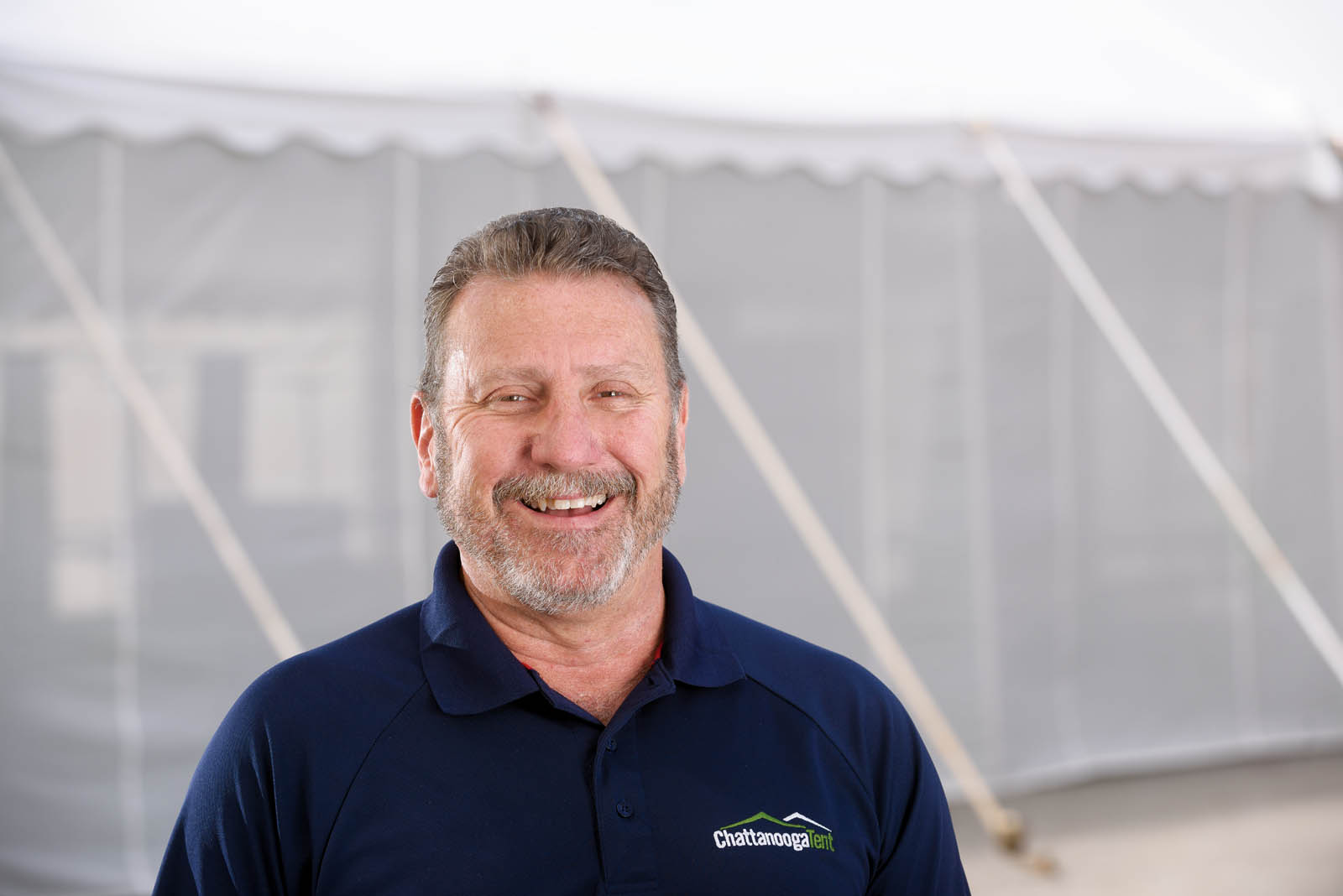
Tents, trends and technology

Photography by Grant Dotson
From RFID to GPS, Mike Holland uses all the newest tools to keep Chattanooga Tent Co. at the leading edge.
“We embrace technology here,” says Mike Holland, president of Chattanooga Tent Co., Chattanooga, Tenn. “Especially when it comes to material handling, we’re always looking for anything that can help us work smarter and be more efficient.”
Holland worked summers at the family business in high school, and after graduating began full time as a tent installer. He worked in the various segments of the company, from installation and selling to manufacturing tents and managing logistics. He developed a love for the industry and dreamed of someday owning the business his grandfather and great uncle founded in 1934—a dream he realized in 2014 when he purchased the company from his uncle. “Years of meeting with clients and the knowledge I’ve gained about what tents can do, what their limits are and how you can stretch those limits are all things that contribute to our ability to do custom work,” Holland says.
It’s about time—and options
Providing the customers with what they want—within set timelines—is priority number one for Holland and his crew. “Our timelines in the tent industry are set,” Holland says. “We don’t get to change them if it rains. So we train our employees to get the job done! For better than 50 percent of our customers, it’s a one-shot deal, so we just get this one chance to make an impression.”
Knowing costs and understanding limits both factor heavily into how Holland bids jobs, which also means understanding how time constraints will affect the bottom line. “I never want us to say no to a customer. I want them to say no to us,” Holland says. “If there’s a way to get the job done, we’ll do it. It may cost the customer more than they want to pay, but we can do it.”
Take, for instance, a project the company recently bid for a church. The church requested approximately 35,000 square feet of tenting but didn’t want the installation to interfere with church attendees’ ability to park, which meant that installation couldn’t begin until Sunday night to be ready for the Tuesday morning event. Holland and his brother began working up the bid by looking at time. They figured it would take six installers four 12-hour days to get it done. To meet the timeline the customer wanted, Holland would have to hire temporary labor, which would bump the costs up considerably.
The other option was to split the installation into parts. He could have the crew do some of the installation on Friday in the grass so the parking lot would be free for Sunday services. “We try to give them options,” Holland says. “We figure out how we can do the job in the way they want it, and they can decide if they would rather spend the extra money or make some concessions.”
 Tracking technology
Tracking technology
Behind the scenes, material handling can eat up a lot of time, and Holland is always on the lookout for new ways to streamline how tent components are managed in and out of the warehouse. A couple of years ago, the company purchased radio frequency identification technology (RFID) for tracking inventory. Each piece of fabric, each tent top and some specialty items were assigned unique RFID numbers. A local company developed software that allowed a scanning gun (aka a reader) to identify items being loaded onto and off of trucks.
In theory, the technology could be a huge time-saver, but there were some glitches that interfered with execution. “Because of all the metal on the trucks and everything going on in the background, we were getting all kinds of incidental reads,” Holland says. “Also, the software was rather cumbersome. Employees had to scan the truck, bring the hand-held reader up to the office, plug it in, and print out the results.”
Holland doesn’t see the investment as a failure, however. He sees it as one step along the path to success. He’s talking with several software manufacturers in the rental industry to try to get them to hone the design so it’s specific to the tent rental industry. “When they get it figured out, they’re going to have a gold mine,” he says.
He points out that locating missing pieces of fabric in inventory is a huge benefit, even with the current system. “If you’re like us and you’ve got thousands of pieces of fabric and you’re in a small, confined area, you can never find what you need because it’s always underneath something,” he says. “We take the locator, program the unique serial number of the missing piece of fabric, and go look for it. When we get within about 15 feet of it, the reader will beep. The closer you get, the more rapidly it beeps.”
GPS me
At about the same time that Chattanooga Tent purchased the RFID technology, the company also invested in GPS tracking for its trucks, which Holland says has helped with job costing, especially for out-of-state jobs. The system provides real-time reporting on driving time and fuel reporting, and notifies him when the trucks are nearing their destination.
“The GPS system also makes drivers a bit more safety conscious,” Holland says. “It will send emails regarding speeding, harsh cornering and harsh braking, as well as start and stop times. It keeps an honest man honest.”
 Staying on top
Staying on top
Holland also keeps his eye on what’s new in tents. This season he’s added a couple of Arcum curved-roof structures to the inventory. “We feel like it’s the next big thing for the industry, so we went ahead and bought a couple,” he says.
Chattanooga Tent Co. sewed the fabric portion and took delivery of the frames at the end of April, just in time for their debut event at a local film festival. “They don’t have a big budget, and we thought it would be a good opportunity to show off the new structures and help out a local event, so we charged them a bit less,” Holland says.
“It seemed like the right place to put the Arcum up for the first time.”
Holland credits ATA’s Tent Rental Division (TRD) for helping Chattanooga Tent Co. stay on top of the trends and industry changes. “We knew long ago from attending conferences and expos that coded engineering was going to become the standard,” he says. “By being aware early and investing our time, energy and money into those products for our customers, we were able to keep ahead
of those changes.”
He also keeps in mind all the people who have taught him the ropes over the years, and continue to teach him. “At every level along the way I’ve relied on those that have been in the industry longer than I have,” Holland says. “An awful lot of the time people forget who taught them what they know and they lose respect for those people. You can never lose that respect.”










